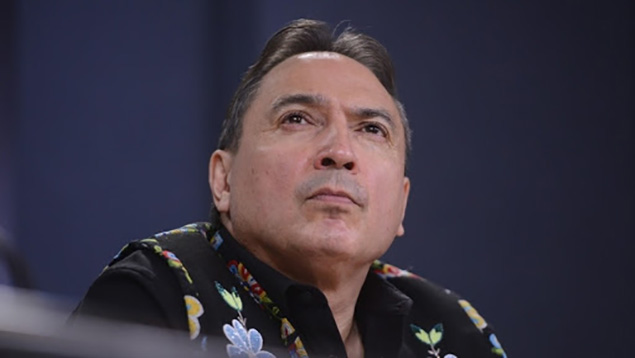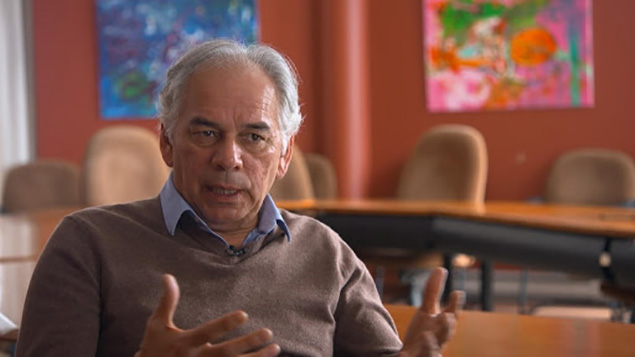First Nations and Metis leaders say they need more help from the federal government to combat COVID-19 in their communities.
The leaders are asking for more money, more assistance with security and more help in acquiring protective equipment.
However, no details of how the funds would be distributed were detailed.
Assembly of First Nations National Chief Perry Bellegarde tweeted praise for Trudeau’s announcement when it was unveiled as part of a broader $82 billion aid package to help Canadians and businesses deal with the fallout from COVID-19.

Assembly of First Nations (AFN) National Chief Perry Bellegarde listens during a press conference at the National Press Theatre in Ottawa on Tuesday, Feb. 18, 2020. (Sean Kilpatrick/The Canadian Press)
The Canadian Press reports that Bellegarde has called on Ottawa to make 10 per cent of the announced funding available immediately, saying the funds earmarked for First Nations for COVID-19 response so far are not proportional to the populations in their communities and more financial help will be needed.
He added that First Nations must be part of all decision-making about how resources will be allocated — something he says that is not happening now.

David Chartrand is seen in 2018 CBC News photo. (CBC News)
Metis National Council vice-president David Chartrand told CP he’s been forced to order personal protective equipment like masks and hand sanitizer directly from China himself because Metis communities have not received any of these supplies due to a squabble over who is responsible for this aid to Metis — the provinces or the federal government.
Chief Ghislain Picard from the Assembly of First Nations’ Quebec-Labrador branch told CP Quebec First Nations also need more protective gear and also have concerns about public safety in the midst of the pandemic.

Ghislain Picard (Photo: RADIO-CANADA)
The leaders’ calls come as data provided by Indigeous Services Canada show the number of positive cases of COVID-19 in Indigenous communities across the country has more than doubled since last week.
Last Thursday, ISC reported 15 cases.
In a CBC News story published Wednesday, Jessica Deer reports that as of Monday, ISC said it was aware of four cases reported in Saskatchewan, 11 in Ontario and 20 in Quebec.
Deer also writes that some Indigenous leaders are questioning the accuracy of the data because of the way it is gathered and shared.
With files from CBC News (Jessica Deer), The Canadian Press







For reasons beyond our control, and for an undetermined period of time, our comment section is now closed. However, our social networks remain open to your contributions.